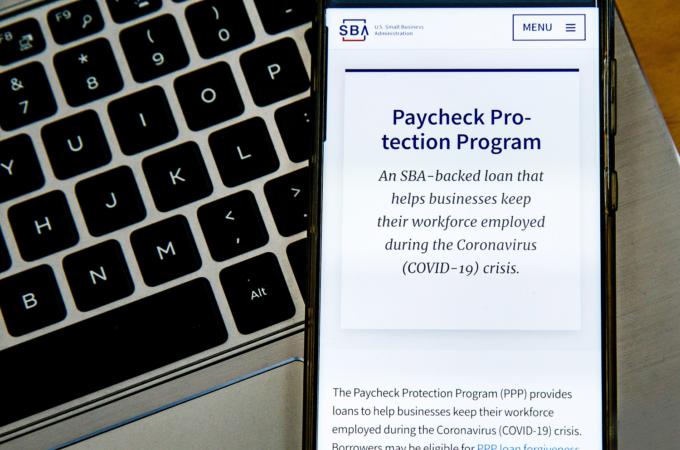Archdiocese clarifies use of Payroll Protection funds
BRAINTREE -- Responding to an Associated Press report criticizing the Church's use of government aid during the coronavirus pandemic, the archdiocese offered clarification on how and why its affiliates used such funds.
In March 2020, the Trump administration passed the Coronavirus Aid, Relief, and Economic Security Act, known as the CARES Act. This included the creation of a Payroll Protection Program (PPP), which would provide small businesses with forgivable loans to enable them to continue paying their employees.
The parishes, schools, central ministries, and other affiliates of the Archdiocese of Boston were among the many applicants for PPP funds. Under normal circumstances, faith-based organizations are not eligible for federal, small-business loans, but Congress and the Trump Administration waived those rules in the extraordinary situation of the pandemic.
On Feb. 4, AP published an investigative report asserting that the Catholic Church had applied for PPP funds despite having usable reserves, alleging that such support was not needed and questioning whether proper that the dioceses received PPP assistance. The Archdiocese of Boston was one of several dioceses whose finances were critiqued.
Responding to the story, on Feb. 8 archdiocesan spokesman Terrence Donilon pointed out that "economic uncertainty" of the early months of the pandemic was "profound."
While some parishes elected not to apply for the program due to their cash reserves, others were unable to make their payroll after one month of missed offertory after Masses were suspended.
"The needs across our 260 parishes were wide ranging and diverse, and each parish made its own assessment as to whether they applied for a loan," Donilon said.
"The PPP funds enabled us to retain a majority of our full-time employees, consistent with the intent of the program," he said.
"Our parish employees, schoolteachers, staff, and families of our students are all tax-paying citizens who reside in the communities where our parishes and schools are located," he noted.
The availability of PPP funds enabled the organizations within the archdiocese to continue their missions, which have had a positive impact on the local community, Donilon explained.
"Annually, Catholic schools save cities and towns across the country more than $20 billion and more than $500 million for the Commonwealth. Parishes operate worship sites, food pantries and various programs that assist people regardless of their denomination or station in life. For instance, Catholic Charities has seen a dramatic increase in demand for its services that address food insecurity and evictions among others and is working hard to provide assistance," he said.
In all, about 300 entities within the Archdiocese of Boston borrowed just over $35 million through the program. Parishes borrowed $16 million, with an average of $62,000 per parish. Schools borrowed a similar amount, averaging $351,000 per school. The archdiocese's Central Ministries received $3.1 million.
In their report, the AP compares the archdiocese's available funds in 2019 and 2020, noting an increase from roughly $200 million to roughly $233 million. However, Donilon pointed out that diocesan fiscal years end June 30. In 2020, this fell just a few months into the pandemic.
Donilon noted that the AP report does not show information regarding profit and loss or offertory trends in dioceses. Instead, it focuses on cash alone, which he called "a flaw in the AP's analysis."
"It is likely the case that, like us, most proceeds were received late in the fiscal year, and some of the cash remained on hand at June 30. So, then it is easy to assume that dioceses' cash on hand looks better when compared to the prior year," he said.
"We informed AP, and they refused to include in their story that year-over-year we had a $20 million revenue loss. We are now an additional six months into the pandemic with more loss of offertory and other funds. From an operating income/loss standpoint, we went from essentially break even to a loss of nearly $6 million in 2020," said Donilon.
He said the banks involved in the PPP program reviewed the qualifications of the various entities and confirmed that they met federal guidelines.
"We expect the forgiveness process will work as intended, with each loan recipient providing the necessary documentation and assertions as required by the program," he said.
Donilon acknowledged the "dramatic and devastating impact" of the pandemic on families and communities.
"Whether employed with a private business, public entity or non-profit, the pandemic does not discriminate," he said.
The archdiocese's annual financial reports can be viewed online at www.bostoncatholic.org/annual-reports-current-and-archives.



















